By Tom Cardamone, December 24, 2014
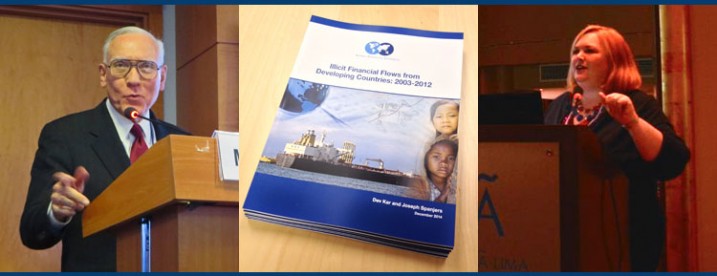
A Quarterly Newsletter on the Work of Global Financial Integrity from October through December 2014
Global Financial Integrity is pleased to present GFI Engages, a quarterly newsletter created to highlight events at GFI and in the world of illicit financial flows. We look forward to keeping you updated on our research, advocacy, high level engagement, and media presence. The following items represent just a fraction of what GFI has been up to since September, so make sure to check our new website for frequent updates.
World Bank Forum on Illicit Financial Flows
On October 11, GFI President Raymond Baker was a featured member of a World Bank panel, titled “Illicit Financial Flows and the Post-2015 Development Agenda,” which focused on the need to curtail the negative effects of illicit financial flows on sustainable development.
Held during the IMF/World Bank Annual Meetings, the public forum was hosted by the World Bank Group’s Integrity Vice Presidency and included high-profile speakers from Bangladesh, Denmark, Norway, and the Untied States.
By Raymond Baker, December 19, 2014

Dear Friends,
Best wishes for a wonderful holiday season.
At Global Financial Integrity, we’ve had another tremendously successful year. On the global stage, many countries are now planning to begin exchanging financial information automatically by the end of 2017 or 2018. Just this week, the European Union agreed to end the incorporation of anonymous companies with the EU. The global community is actively discussing whether a goal to reduce illicit financial flows should be included in the upcoming Sustainable Development Goals.
That said, as our flagship annual report—published this week—on illicit financial flows from developing countries shows, the developing world continues to lose US$1 trillion per year in illicit outflows, and they are growing at roughly twice the rate of global GDP. More must be done.
While GFI’s work has a tremendous impact, we have done all of this with only about 10 staff members and a very modest budget, which significantly hinders the impact that we can have. Just imagine what we could do with a larger budget to leverage our groundbreaking global economic research and policy advisory work with governments.
By Liz Confalone, December 5, 2014

Slow but Steady Progress towards Curtailing the Abuse of Anonymous Companies
In June 2013, G8 leaders met in Lough Erne and agreed to a set of principles on beneficial ownership transparency. The principles state that companies should maintain their beneficial ownership information and that the information should be available to law enforcement and other competent authorities; additionally, countries were to consider making such information available to financial institutions and other regulated businesses. Trust information should be collected and available, the principles explained, but only to law enforcement. These principles were largely reiterated by the Financial Action Task Force (FATF)—the body setting international anti-money laundering standards—in their Guidance on Transparency and Beneficial Ownership in October 2014 and by the G20 in their High Level Principles on Beneficial Ownership in November 2014.
Despite the establishment of this baseline, momentum is building since Lough Erne to raise the bar. In July 2013, the UK began the process to establish a central register of information and, after a public comment period, determined that the register should be publicly available—a position strongly supported by Global Financial Integrity (GFI). In April 2014, the European Parliament approved provisions requiring formation of public registers as part of their draft of the European Union’s Fourth Anti-Money Laundering Directive (AMLD), but the E.U. Council and the E.U. Commission have yet to take a public position on the AMLD, delaying its final adoption. Just last month, Denmark announced that it, too, would create its own public registry of beneficial ownership information.
By Raymond Baker, November 25, 2014
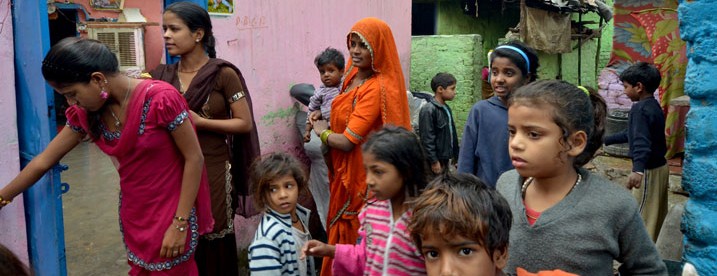
By Any Measure, Illicit Financial Flows Pose a Devastating Challenge to Developing Countries and Human Lives
Thomas Pogge—Professor of Philosophy and International Affairs at Yale University, Director of the Global Justice Program, President of Academics Stand Against Poverty (ASAP), and member of the Board of Directors of Global Financial Integrity (GFI)—has estimated that 18 million people die each year of economic deprivation and causes stemming therefrom. His calculation is based in good part upon estimating the number of people dying from preventable diseases.
GFI estimates that US$1 trillion a year of illicit financial flows drains from developing countries into western accounts. Our estimate is based on balance of payments and balance of trade data filed by governments with the International Monetary Fund (IMF), the same data that is used by millions of people every day in making decisions about investments, loans, interest rates, exchange rates, and more. We believe that our data is very conservative because it does not include major components of illicit outflows, which do not show up in official statistics.
18 million people dying a year is around 50,000 people a day. US$1 trillion a year is roughly US$3 billion a day.
On this day, how many of the 50,000 people will live, if the US$3 billion stays home?
By Joseph Spanjers, November 21, 2014
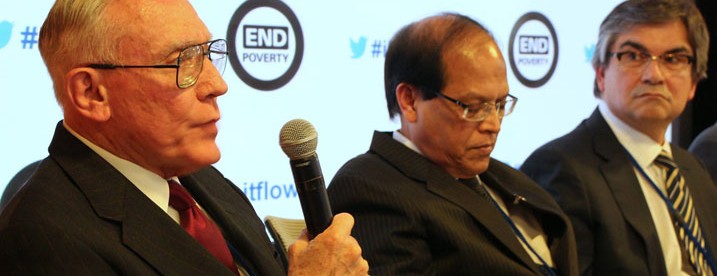
Mexico and Bangladesh Voice Support for a Clear Target on Curbing Illicit Financial Flows on the Sustainable Development Agenda
The United Nations is in the process of forming the post-2015 development agenda. These proposed Sustainable Development Goals (SDGs) will eventually replace the Millennium Development Goals (MDGs) that were agreed upon for 2000-2015. As with the MDGs, the SDGs will inform which development issues take priority in the coming years.
Sustainable Development Goal 16.4, as is currently proposed by the UN’s Open Working Group, calls on the international community to:
“by 2030 reduce illicit financial and arms flows, strengthen recovery and return of stolen assets, and combat all forms of organized crime.”
Global Financial Integrity (GFI) applauds the Open Working Group for considering illicit financial flows in its proposal. Though Goal 16.4 is definitely a start in the right direction, it is not exclusively focused on illicit financial flows, nor is it measurable in the least. GFI proposes the following as an alternative:
“by 2030, reduce illicit financial flows related to trade misinvoicing by 50%.”
By Channing Mavrellis, November 20, 2014

Whether South Africa’s Illegal Gold Mining Problem Is Measured in Revenue, Security Risks, or Human Lives—in the End, Everyone Loses
South Africa is the world’s fifth largest producer of gold, with the gold mining sector representing approximately two percent of South Africa’s GDP. Yet the country’s mineral wealth has proved to be a growing source of illegal activity and conflict.
There are approximately 14,000 illegal gold miners in South Africa, many of whom are illegal immigrants from Lesotho, Mozambique, and Zimbabwe. Illegal gold miners are known locally as “zama zamas,” which is variously translated as “We are trying” or “He who seizes the opportunity” or “Take a chance.” They operate in the estimated 4,000 to 6,000 abandoned mines in the Witwatersrand basin, but will also bribe security guards, policemen, or mine employees to gain access to active mines and/or to steal equipment. Credible estimates of the value of the illegal gold mining industry vary widely, ranging from US$500 million to US$2 billion annually.
Not included in these figures is the tax fraud involved in these activities. According to Naomi Fowler, criminal syndicates exploit the fact that value added tax (VAT) is not charged on mined gold whereas it is on processed gold. These syndicates then use techniques like trade misinvoicing to fraudulently certify illegally mined gold as legitimate second-hand scrap gold, which enables them to claim back VAT that they never paid.
By Christine Clough, PMP, November 13, 2014
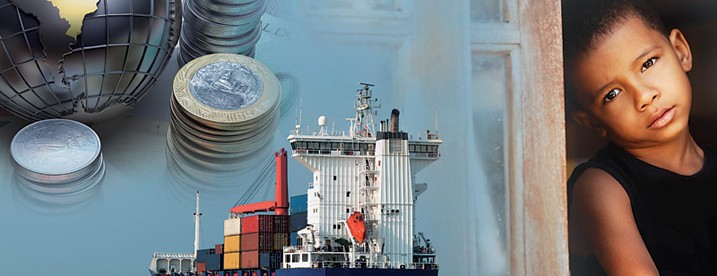
A Recent GFI Study & Conference Focused on Brazil’s Illicit Financial Flows, which Cost the Latin American Country US$401.6 Billion from 1960-2012
A pair of articles by The Economist last week highlight the economic challenges that Brazil’s recently re-elected president, Dilma Rouseff, will face in her second term leading Latin America’s largest economy. The federal budget shortfall has grown to 4.9% of GDP. Tax increases could further undermine growth, and cuts to benefits programs for Brazilians might also decrease spending and slow the economy, in addition to weakening progress on addressing the country’s economic inequality and poverty rates.
Many Brazilians already complain about the high tax rates and poor public services. According to a Christian Science Monitor article, which cites the Brazilian Institute of Tax Planning:
“the average person works 150 days a year to pay taxes, compared with 102 days in the [United States]. Among the 30 countries with the highest tax burdens, Brazil ranks last in terms of the quality of services citizens receive in exchange for high taxes.”
Businesses and individuals in Brazil are also dealing with high inflation, slow growth, a weakening currency, and a growing current-account gap.
By Joshua Simmons, November 10, 2014
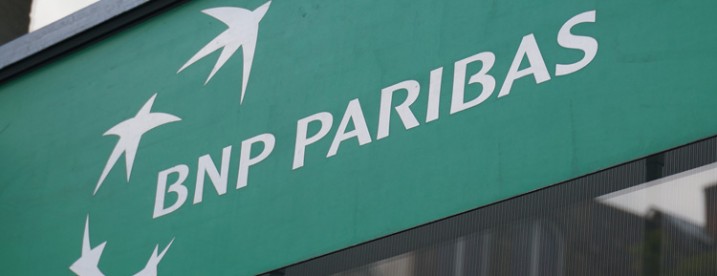
Until Global Financial Crime Punishments include Individual Prosecutions, Rogue Banks Will Continue to Do as They Please, Writes GFI’s Joshua Simmons
After the recent spate of massive money-laundering, sanctions-busting, and tax-evasion scandals involving large international banks, sometimes it seems more difficult to name a single bank that has not been exposed for wrongdoing than list all those that have. One might think that, having worked their way through so many financial institutions, investigators and prosecutors would be at a loss for what to do next. The banks, though, seem more than willing to provide more work, with many either failing to meet their ends of their settlement agreements, continuing to move money for criminals and tax-evaders, or both.
Standard Chartered, which settled charges in mid-2012 related to its widespread activities violating U.S. sanctions on Iran, Burma, Libya, and Sudan, paid an additional fine this summer for failing to uphold its obligations under the settlement. The bank may now be in line for even more punishment, after new information seems to indicate additional transactions with Iranian entities that weren’t disclosed or admitted in the original settlement. It’s not presently clear whether Standard Chartered retained a relationship with Iranian customers after its settlement in 2012, but it certainly continued to take their money after the initial investigation began.








